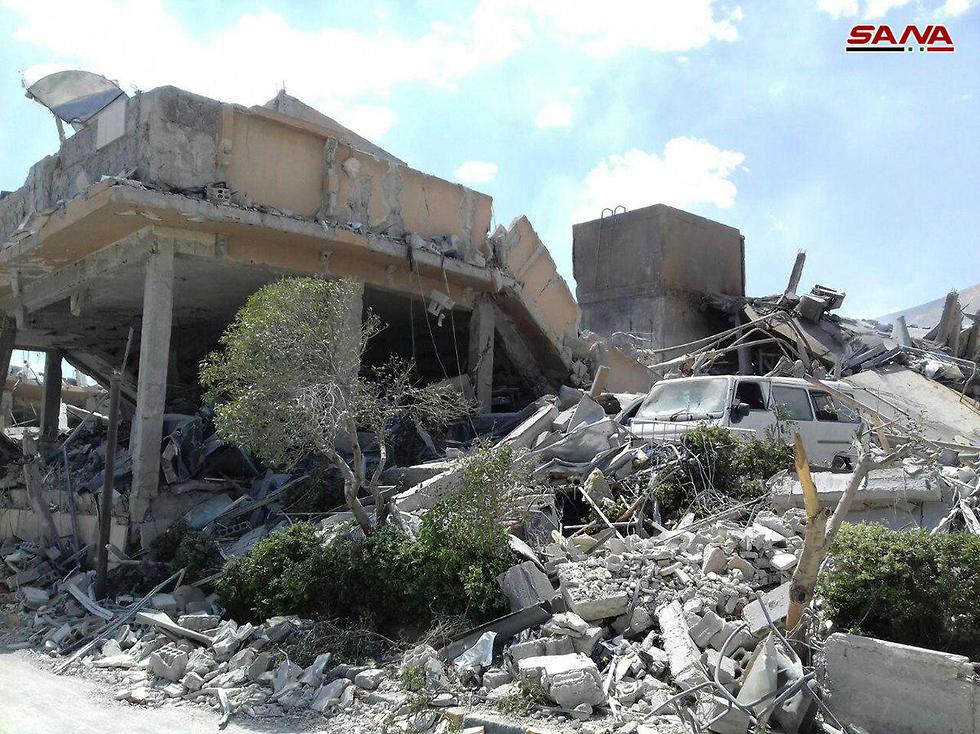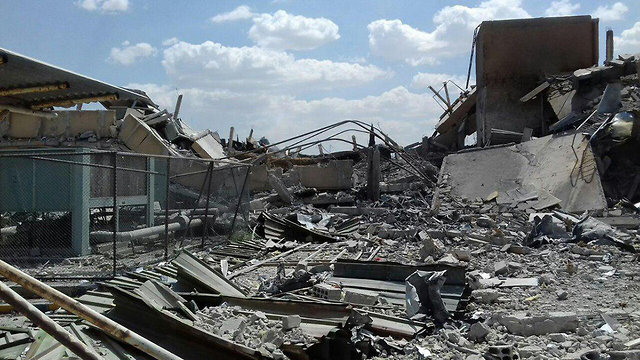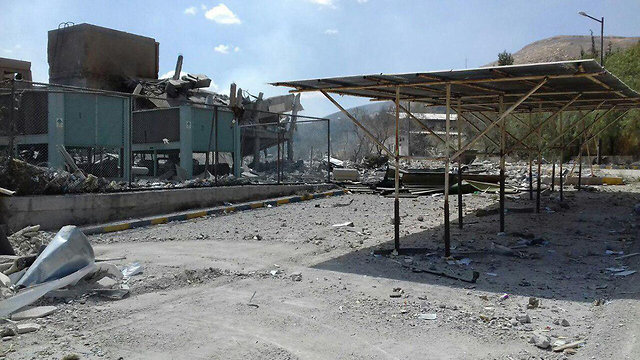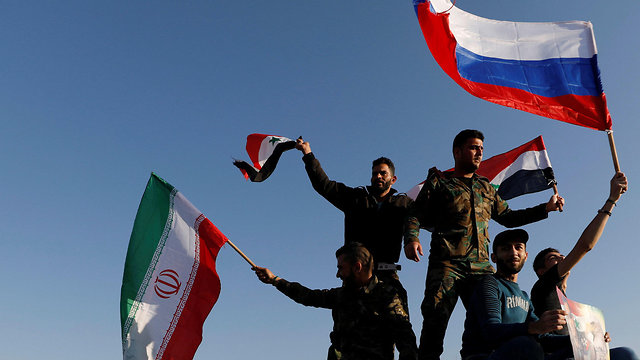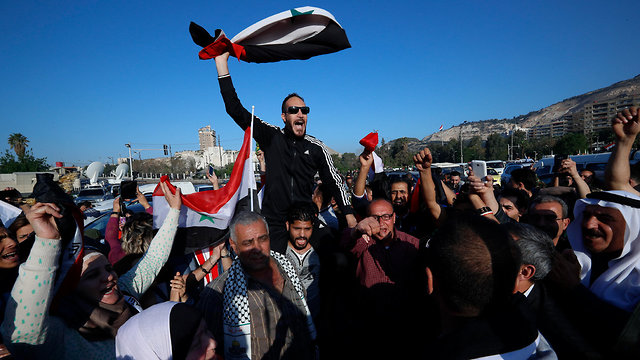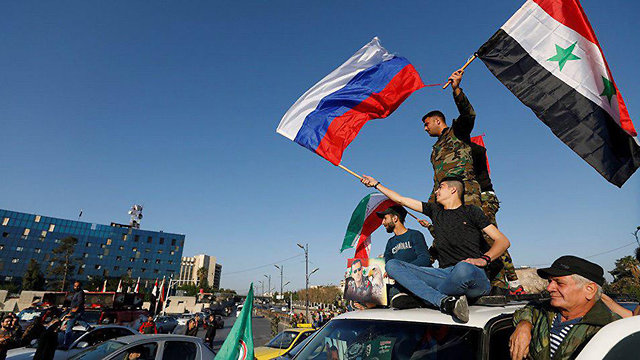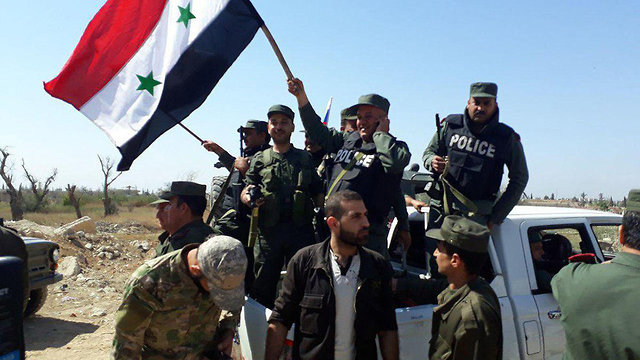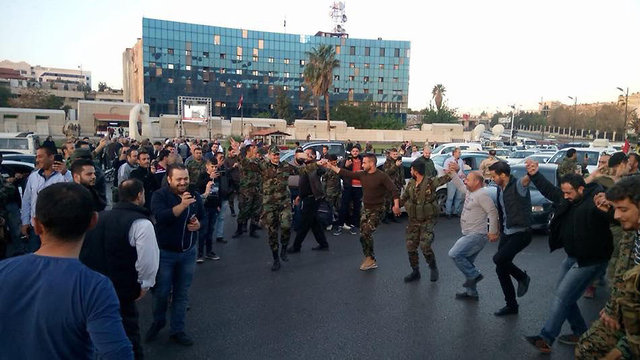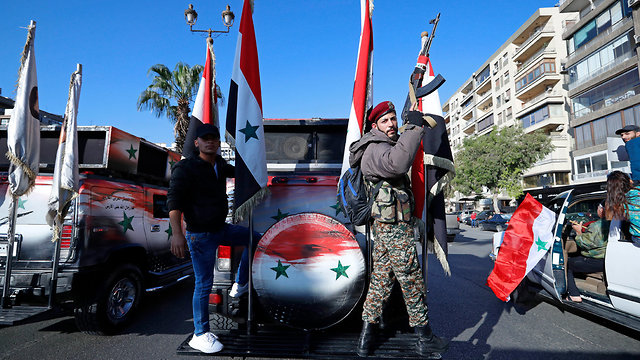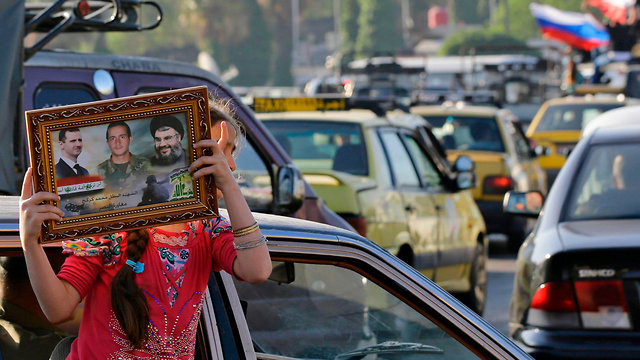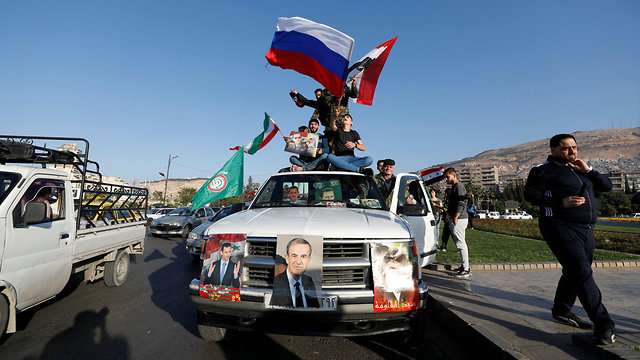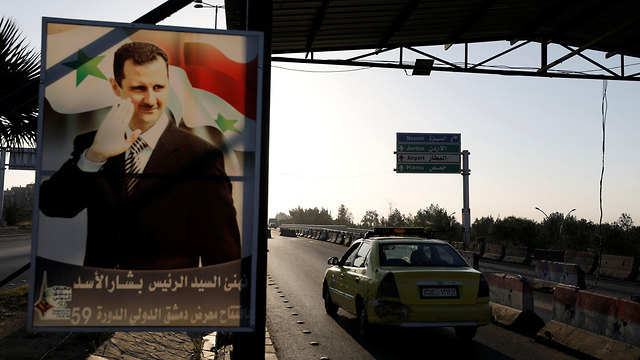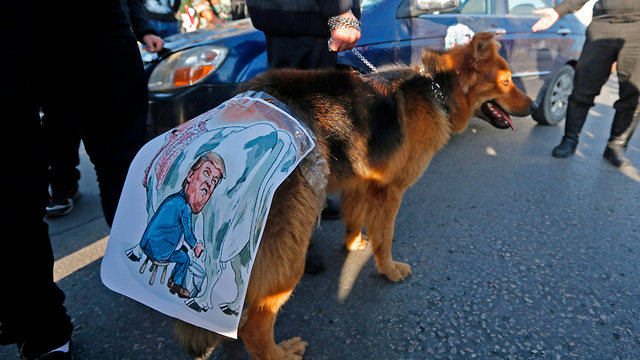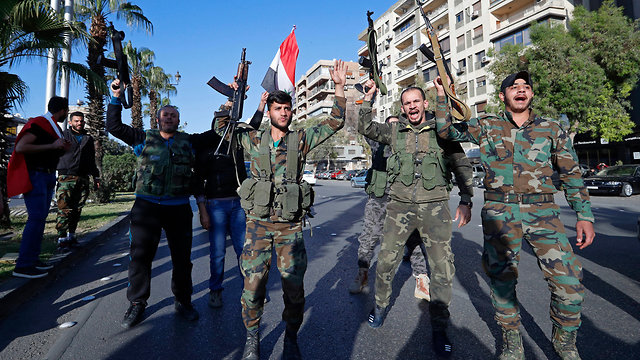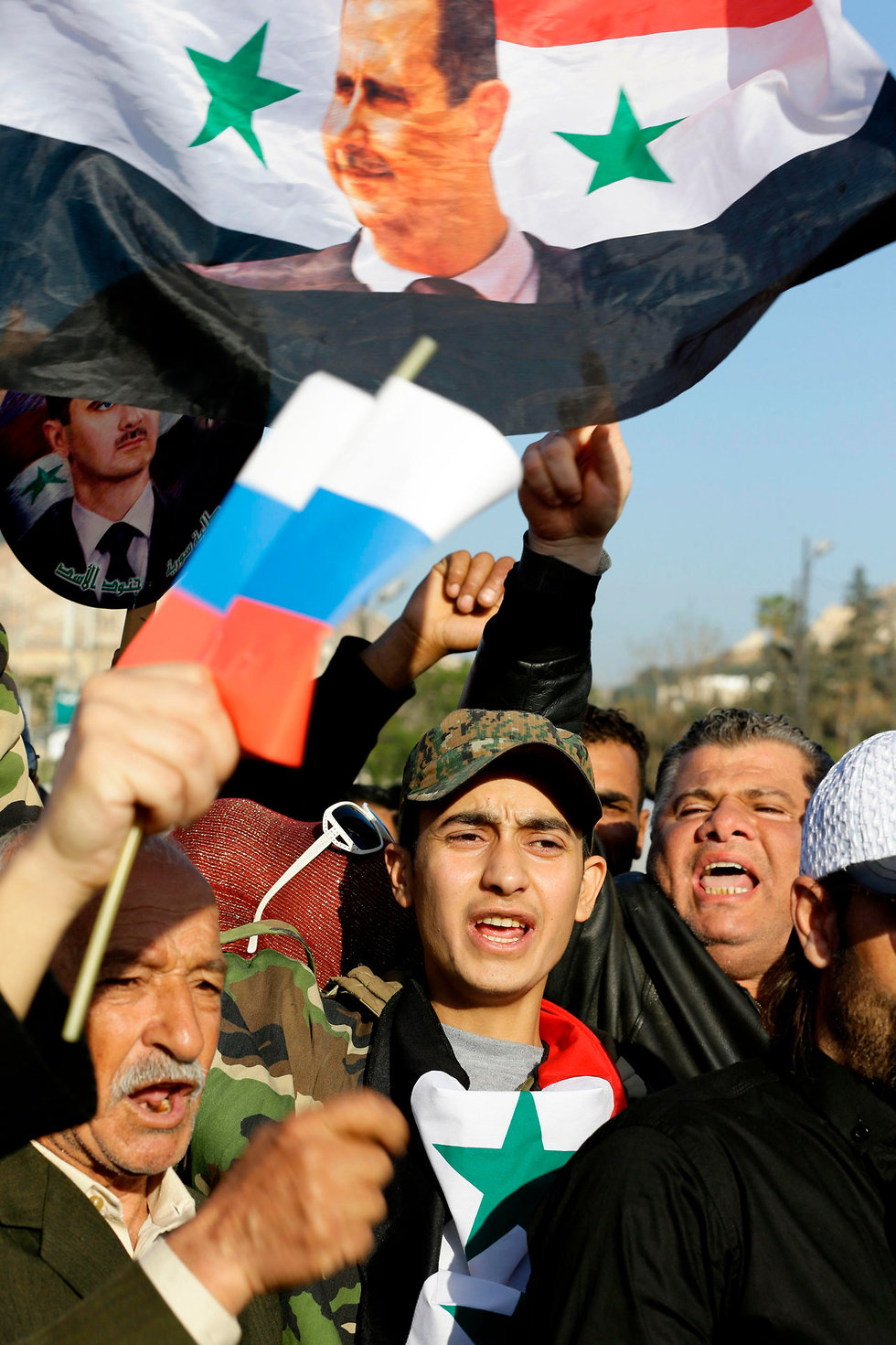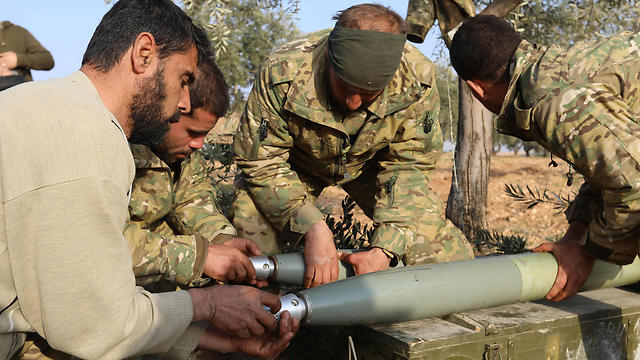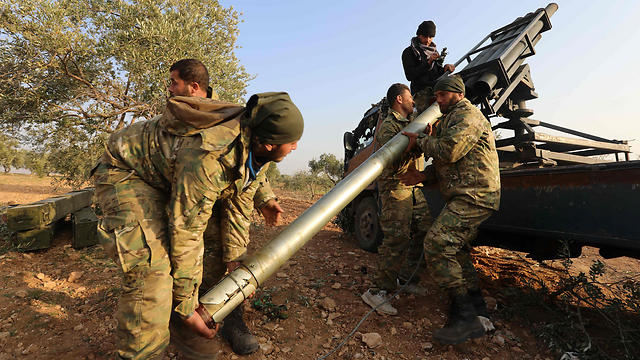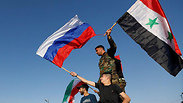
Syrian President Bashar Assad told his Iranian counterpart Hassan Rouhani that the unprecedented US-led air strikes on Saturday would increase Syria's resolve to "fight and crush terrorism in every inch" of the country, the Syrian presidency said.
The United States, Britain and France struck Syrian military targets before dawn over a suspected gas attack last week, which Western powers blamed on Assad and his allies.
Assad also said the US, UK and France decided to attack after realizing they have lost control of the area and their credibility.
Rouhani told Assad that Iran would continue to stand by Syria, "expressing his confidence that this aggression would not weaken the determination of the Syrian people in its war against terrorism."
The Syrian military delivered a similar message in a televised statement, saying "Such attacks will not deter our armed forces and allied forces from persisting to crush what is left of the armed terrorist groups."
In an effort to show it was business-as-usual for Assad following the strike, the Syrian presidency posted a video of him arriving for work on Saturday, just hours after the attack.
"The morning of resilience," declared a caption accompanying the video circulated on the presidency's Telegram feed, which showed Assad in a suit and tie and carrying a briefcase as he walked into the marble-floored entrance of a building.
Russia said 71 out of 103 cruise missiles launched by the US and its allies were intercepted by Syrian government air defense systems using Soviet-made air defense missile systems with high efficiency, shooting down all of the missiles aimed at four key Syrian air bases.
Damascus with key allies Russia and Iran, have lambasted reports of the suspected gas attack as bogus. The Syrian government has accused Washington of seeking to use it as a pretext for attacking.
The Syrian Foreign Ministry said earlier on Saturday that the US-led strikes would only "lead to inflaming tensions in the world" and threaten international security.
"The barbaric aggression ...will not affect in any way the determination and insistence of the Syrian people and their heroic armed forces," state media cited an official source in the ministry as saying.
A senior official in a regional alliance that backs Damascus told Reuters the Syrian government and its allies had "absorbed" the attack. The sites that were targeted had been evacuated days ago thanks to a warning from Russia, the official said.
Defiance on the streets of Damascus
Immediately after the attack, hundreds of Syrians began gathering in the landmark Omayyad square in the Syrian capital of Damascus, celebrating what they said was the army's success in shooting down or derailing some of the missiles.
Many waved Syrian, Russian and Iranian flags. Some clapped their hands and danced, other drove in convoys, honking their horns in defiance.
"We are not scared of America's missiles. We humiliated their missiles," said Mahmoud Ibrahim, half his body hanging outside his car window, waving a Syrian flag. The crowd then moved toward the nearby Damascus University where pro-government fighters danced, waving their automatic rifles over their heads.
"We are your men, Bashar," they shouted. Others shouted: "Oh Trump you are a monkey. Oh Trump you are an animal," as they stood in the square decorated with a giant colored "I Love Damascus" sign. The taunts were a clear retort to Trump calling Assad an "animal" in tweets following the suspected chemical weapons attack.
Syrian state TV broadcast live from the square where a large crowd of civilians mixed with men in uniforms, including an actor, lawmakers and other figures.
The attack began at 4am (1am GMT) with missiles hitting the eastern suburbs of Damascus, shaking the grounds from a distance. The sky looked orange over eastern Damascus apparently as a result of fires caused by the missiles hitting Syria. Air defense units fired surface-to-air missiles from different directions toward incoming missiles.
At about sunrise, the sound of explosions could be heard just as the loudspeakers from the city's mosques called for morning prayers.
A car with loudspeakers blaring the national song "Oh Syria, You Are My Love" could be heard driving through central Damascus amid the attack.
Syrian TV called the attacks a "blatant violation of international law and shows contempt for international legitimacy."
"Good souls will not be humiliated," Syria's presidency tweeted after the airstrikes began.
Rebels say strikes not enough
The Syrian opposition said the US-led strikes would not change the course of the seven-year-old war, urging Western powers to also hit Assad's conventional weapons which have killed many more people during the war.
Some insurgent officials said they feared an onslaught against the rebel bastion of Idlib, which a senior Iranian official has indicated could be the next target.
Nasr al-Hariri, a senior opposition leader, said Syrians need a strategy that leads to a political solution to "save it from the brutality of the Syrian regime."
Al-Hariri, in a tweet, suggested the strikes send the wrong message that while it is not OK to use chemical weapons, the Syrian government can continue to "use explosive barrels and cluster bombs."
"Maybe the regime will not use chemical weapons again, but it will not hesitate to use weapons," opposition leader Nasr al-Hariri said.
A rebel fighter said he was bracing for further attacks as "revenge" by the government with its allies on rebel territory in the northwest, including the Idlib region.
"More was expected from the American strike to affect the path of the war and to curb Assad's crimes," he told Reuters from Hama province.
The war has been going Assad's way since Russia intervened on his side in 2015. From holding less than a fifth of Syria in 2015, Assad has recovered to control the largest chunk of the country with Russian and Iranian help.
Mohamad Alloush, political chief of the Jaish al-Islam faction that had controlled Douma, said the Western strikes on Saturday would not be enough.
"As long as this regime and its security agencies exist, the chemical (attacks) will continue because there is safety from the consequences that would end it," he said. "And (Assad) is portraying what happened as a victory."
The opposition has praised President Donald Trump for taking action against Assad after criticizng former US President Barack Obama for failing to enforce his own red line when Assad was accused of using gas in 2013. But they want more.
"The strike has weakened the regime, but has not strengthened the opposition," said another rebel commander.
Trump last year decided to halt a CIA program that had funnelled weapons and cash to some Free Syrian Army rebels.
 |















